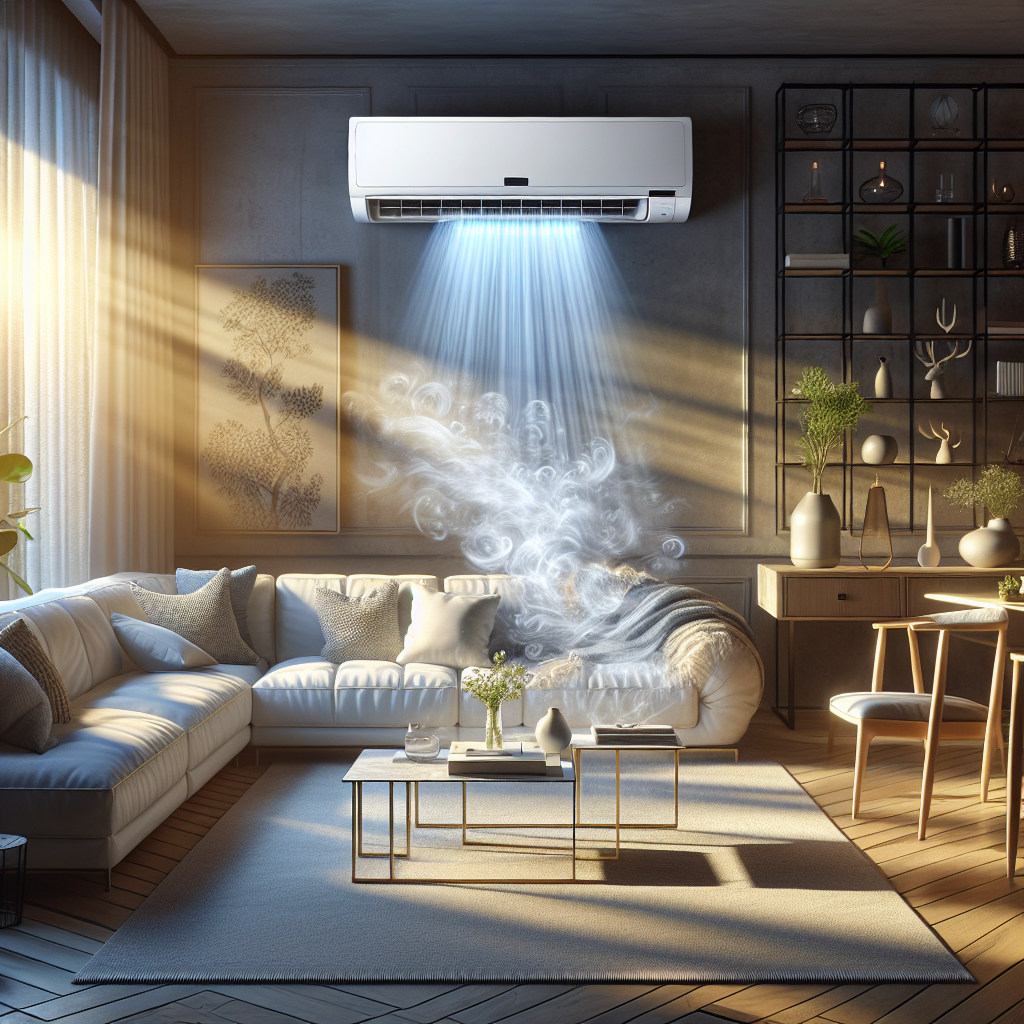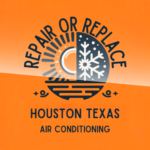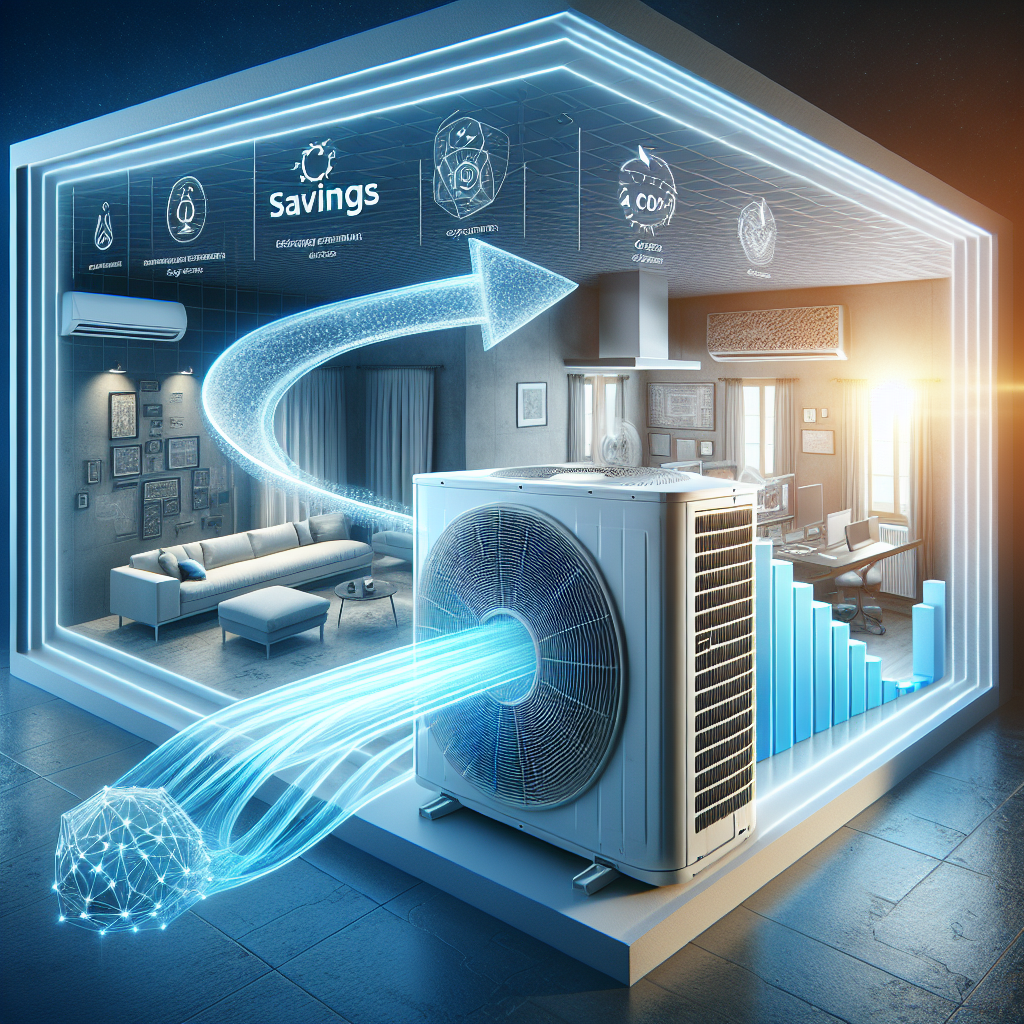Finding the right air conditioning system can feel like a bit of a puzzle, but don’t worry, we’re here to simplify things. Investing in cooling solutions is not just about those upfront costs; it’s about striking a balance between your comfort and your spending.
Start by considering what you truly need.
Are you someone who loves to keep things chilly, or do you prefer a milder vibe? And let’s not overlook the weather where you live.
If you’re in an area where temperatures soar, it might make sense to invest a little more in a powerful system to keep you cool when it matters most.
Next, let’s talk about setting a practical air conditioning budget.
Click here to learn more about: prices.html
Understanding AC Cost Factors
As you think about investing in a new air conditioning unit, remember to keep your personal needs and budget in mind. Breaking down the expenses associated with this HVAC investment will help you make a smarter choice, ensuring you get the right cooling solutions for your lifestyle.
When we chat about costs, you’ll want to focus on two main elements: installation expenses and your ongoing monthly payments to stay cool.
To get started, the upfront installation costs can vary quite a bit. This includes not just the unit itself but also labor and materials to make sure everything runs smoothly. If you go for professional installation, their expertise can greatly affect the performance and lifespan of your new system. A properly installed unit can lead to long-term savings, so it’s definitely worth considering those technician fees right from the start.
Next up, let’s dig into those ongoing costs that come with keeping your home comfortable. Energy usage is a big deal, and it’s wise to think about maintenance fees and potential repair costs. These expenses can stack up, especially when you factor in energy efficiency, replacement costs, and cooling capacity. Choosing energyefficient models at the outset can really help ease future operational costs, while smart thermostats can boost system efficiency and lead to lower monthly bills.
Finally, always keep in mind the significance of warranties and seasonal maintenance. They can play a crucial role in ensuring a long unit lifespan and protecting you from unexpected expenses. So, as you consider your options, remember all these factors to navigate the AC cost landscape more effectively.

How To Set An Air Conditioning Budget
As you think about the costs related to your new air conditioning unit, planning your budget can seem a bit daunting. But just like we’ve covered installation expenses and energy efficiency earlier, understanding your ongoing costs for maintenance and repairs will really help you make smart choices.
Costs can differ greatly depending on your unit size and the features of your home, so having a clearer idea of what to expect can be a real game-changer.
Understanding Your Costs
One aspect to consider is going for flat-rate pricing that many HVAC pros offer. This pricing plan makes it easier to stick to your budget and keeps you away from those pesky surprise costs that can pop up out of nowhere. Knowing exactly what you’ll need to pay upfront puts you a bit more in control of your finances.
Look for Deals
Don’t forget to keep an eye out for available deals in Houston! Seasonal promotions and budget-friendly options, along with financing plans and upfront payments, can significantly help you lower your maintenance fees.
Tips for Building Your AC Budget
- Typical maintenance and repair costs can vary based on the unit size and residential features.
- Flat-rate pricing from HVAC professionals can help you avoid unexpected expenses.
- Seasonal promotions and financing options can lead to significant savings on these costs.
- Being aware of potential expenses helps you create a more effective air conditioning budget.
Assessing HVAC Investment Benefits
With thoughts of costs and budgeting fresh in your mind, let’s chat about why investing in an HVAC system is genuinely a smart move, especially in Houston’s intense summer heat. There’s nothing quite like getting back to a refreshingly cool home, and this becomes super important when the sun is blazing high in the sky.
In such a humid climate, having an effective air conditioning system isn’t just nice; it’s a must-have. Each time you switch the unit on, you might worry about how it will affect your energy bills, but putting money into regular upkeep can help keep those ongoing expenses reasonable while you enjoy the cool indoors.
Today’s cooling systems often feature impressive seasonal efficiency ratings, which can really lower your energy bills. These upgrades aren’t just for show; they lead to actual long-term savings when you compare them to older models. When you’re thinking about upgrading your system, you’ll see a range of brand options, unit sizes, and warranty coverage that fit your specific needs, making it easier to pick the right model with great energy efficiency.
Regular maintenance not only stretches the unit lifespan but also boosts system efficiency, allowing you to enjoy the cooling solutions you love without worrying about rising energy costs. Regular check-ups can also catch small problems before they escalate into big repair costs, saving you on unexpected maintenance fees.
Want to squeeze the most out of your HVAC investment? Think about making a wise choice by focusing on energyefficient models, which can lead to lower operational costs and lessen your environmental footprint. And don’t forget to compare performance ratings and consumer reviews to pick a model that has a solid reputation for durability and efficiency.
In the end, investing in HVAC services designed for Houston’s unique climate not only guarantees your immediate comfort but also brings financial savings in the future. Adopting the right system and keeping up with regular maintenance changes how you handle the relentless Texas heat, keeping you cool and your costs under control.
Evaluating System Price And Quality
Now that you’ve got a good grasp on your AC costs and the long-term perks of investing in an efficient system, it’s super important to consider both price and quality when picking the right HVAC option. Finding that sweet spot between what you’re spending and the value you’re getting can really impact how happy you are with your cooling solution.
Sure, a low price might grab your attention, but it could lead to higher operational costs later on. This is why choosing a well-reviewed system usually means you’ll enjoy a longer unit lifespan and avoid the headache of frequent, costly repairs. It really pays off to think ahead and invest wisely now for those lasting benefits.
Things like brand reputation and the specific type of system you decide on can really sway the prices. That’s why doing some homework is essential. When you’re looking at central units or ductless options, understanding these factors will help you know exactly what you’re getting in terms of quality.
And don’t forget about the technicians! Making sure they’re licensed and insured isn’t just about peace of mind; it’s vital for ensuring proper installation. This goes a long way toward maximizing your system’s efficiency and lifespan. Plus, it helps you enjoy better energy star ratings, as the right compressor type being installed can boost your overall system performance.
HVAC Systems
- Investing in quality HVAC systems can help lower long-term operational costs thanks to better energy efficiency.
- Well-reviewed HVAC options typically have longer lifespans, reducing the frequency and expense of repairs.
- Choosing licensed and insured technicians guarantees proper setup, which is crucial for maximizing system efficiency and durability.
- Brand reputation and system type greatly influence the initial cost and overall value of your HVAC investment.
Importance Of Energy Efficiency Ratings
Having talked about the importance of smart investments in your HVAC system, let’s switch to why energy efficiency ratings matter when you’re picking out your air conditioning unit. Understanding these ratings is really important; they give you a clear view of how much electricity your system will use, which directly affects your comfort and your air conditioning budget.
This know-how lets you compare different options and find a model that fits both your needs and financial goals. Choosing units with higher energy efficiency ratings usually leads to lower energy usage, meaning you’ll see noticeable savings on your utility bills over time.
For example, picking energy-efficient residential models not only cuts down your monthly costs, but also helps reduce your environmental impact—definitely a win-win!
Looking at these energy efficiency ratings should be as key as thinking about the upfront payment for the system. The right air conditioning choice can do so much more than just keep your place cool; it can lead to significant long-term savings related to the type of refrigerant, options for various models, and whether you go for ducted AC or ductless options.
And don’t forget about the extra features that often come with these energy-efficient models, like smart thermostats and different compressor types. When you prioritize energy efficiency, you’re not just getting a cooling solution for today; you’re making a choice that supports future cost savings, boosting comfort, and overall satisfaction.
Calculating Installation Expenses Accurately
Having explored the financial aspects of selecting an HVAC system and why energy efficiency ratings are key, let’s break down how to accurately estimate your installation expenses. Figuring out the costs associated with your setup can seem a bit tricky, but with a little organization, it becomes manageable. Start by establishing a clear air conditioning budget that considers not just your initial outlay but also the potential savings over time.
As you look into your price range, don’t forget to explore financing plans that can help ease those upfront payments.
- Identify All Potential Costs
- It’s important to consider more than just the price tag of the unit; be sure to include installation fees, necessary permits, and any adjustments that might need to be made in your space.
- Don’t overlook ongoing maintenance fees, which can sneak up on you if you’re not prepared.
- When considering home heating and cooling solutions, evaluating ductless options, smart thermostats, and consumer reviews can provide a clearer picture of the best choices available.
System Setup Expenses
- Initial costs can include the unit price, installation fees, and necessary permits.
- Ongoing maintenance costs can add up significantly over time if not accounted for, impacting your overall HVAC investment.
- Exploring ductless options and smart thermostats can lead to better energy efficiency and savings, ultimately enhancing your unit lifespan.
- Consumer reviews can provide valuable insights into the reliability and performance ratings of different systems, helping you make informed decisions.
Comparing Replacement Costs Over Time
Now that we’ve covered the importance of energy efficiency ratings and how to estimate installation expenses, let’s break down comparing the costs of air conditioning replacements over time. It’s easy to feel overwhelmed by all the options available, but keeping a few key points in mind can simplify your decision-making process.
Upfront Payment vs. Long-Term Savings
When looking at AC replacements, focusing just on the upfront costs isn’t the best way to go. You’ll also want to consider installation expenses and your future energy usage. Sure, energyefficient models might cost a bit more initially, but they can really help you save in the long run on your monthly bills.
Repair or Replace?
If you find yourself stuck between fixing your current unit or buying a new one, take a closer look at your ongoing operational costs. If breakdowns are common and maintenance fees are climbing, it might be a sign that it’s time for a new system. Generally, if repair costs exceed half the system price of a new unit, replacing it is usually the smarter financial choice.
The Benefits of Newer Models
On the topic of replacements, new units come with a range of energy-efficient features, which means lower energy usage and better system efficiency. Plus, newer models often have improved seasonal efficiency ratings, which can really cut down on your energy bills. As you check out various brand options, try to find those that offer competitive local pricing and solid warranty coverage to protect your HVAC investment.
Finding the Right Fit
Spend some time comparing different residential models, including ducted AC and ductless options, to ensure you find the best match for your home and air conditioning budget. Don’t forget to look at consumer reviews, as they offer real-world insights on performance ratings and unit lifespan. By being thoughtful in your approach, you’ll not only discover the most budgetfriendly options but also maximize your potential savings over time.
Determining Appropriate Cooling Capacity
So, we’ve covered replacement costs and the perks of newer air conditioning models. Now, let’s chat about something just as important: picking the right cooling capacity for your space. This decision is a big deal for keeping your home comfy, especially when those hot summer days roll in.
Why Cooling Capacity Matters
Going for a unit that’s too small can leave you feeling sticky and uncomfortable, while a system that’s too powerful can rack up unnecessary expenses and waste energy. This is where skilled technicians truly shine; they’re not only there to set everything up but also to make sure your cooling solution suits your particular needs.
Factors to Consider
These pros take a look at a bunch of different things, like your home’s size, the quality of your insulation, and what the local climate throws at you. By aligning your air conditioner with these factors, you’re paving the way for comfort and possible long-term savings with energyefficient models. Think of this as a smart choice in your HVAC investment.
The Importance of Proper Installation
Don’t forget, getting the installation right is just as crucial. Hiring trained professionals can save you from costly slip-ups that mess with how well your system works. Take a second to think about your future. Are you planning any changes that could impact installation expenses, technician fees, or even your overall energy usage? Setting a wise air conditioning budget now could really benefit you when the summer sizzle hits.
Considering Maintenance Fees In Budgeting
Following our discussion on cooling capacity and picking the right unit, let’s chat about a key part of your HVAC investment: maintenance fees. When it comes to keeping your home comfy, planning for regular upkeep isn’t just smart—it’s essential. Setting aside a little cash for routine service calls can really save you from surprise repair costs later on, which often hit the wallet the hardest.
Think of it as a way to invest in peace of mind and long-term savings. Regular check-ins can help catch minor issues before they turn into major headaches, keeping your system’s efficiency running high.
Getting HVAC quotes from local pros can assist in figuring out the costs tied to your regular maintenance. By knowing what to expect, you can plan your air conditioning budget more effectively.
As you’re creating that budget, remember to include seasonal maintenance; it’s not just about keeping your system in working order. Consistent upkeep adds to a longer unit lifespan and ensures energy efficiency over time. Have you considered how making informed choices about HVAC quotes and your purchase options can positively affect your home? Using features comparison and online estimates can really help you navigate those brand options, making sure you feel confident in your choices.
Exploring Budget-Friendly AC Options
As we look to keep our homes comfortable without breaking the bank, let’s chat about some budget-friendly air conditioning solutions available, especially for folks in Houston. After keeping an eye on maintenance fees and understanding cooling capacity, it becomes clear that finding an affordable cooling system is totally doable.
Finding the Right System
With a variety of local promotions at your fingertips, zeroing in on a system that matches your needs can be pretty easy. Affordable repairs are essential for maintaining your air conditioning setup. Look for services that focus on both quality and keeping costs low.
Importance of Maintenance
Staying on top of consistent maintenance is super important—regular checks can catch small problems before they turn into pricey repairs. Check out installation packages that combine essential services at a friendlier price point; this can help simplify your air conditioning budget while making sure your system is running smoothly.
Take Advantage of Incentives
Also, remember to explore those manufacturer incentives! These can greatly reduce your upfront costs, making your options even more wallet-friendly. With a variety of choices out there, you can tap into those manufacturer incentives, seek out installation packages, and grab local promotions to ensure your home is set for the summer heat without stretching your finances too thin.
Affordable Summer Solutions
- Regular maintenance can keep your system’s operational costs low by spotting issues early.
- Installation packages often provide bundled services at a friendlier rate, making upgrades more manageable.
- Manufacturer incentives can help bring down upfront expenses significantly, enhancing affordability.
- Local promotions offer extra savings opportunities, ensuring your home is summer-ready without stress on your wallet.
Is It Cheaper To Buy Central AC In Winter
How Much Does Installing A New Central AC System Cost For Your Home


